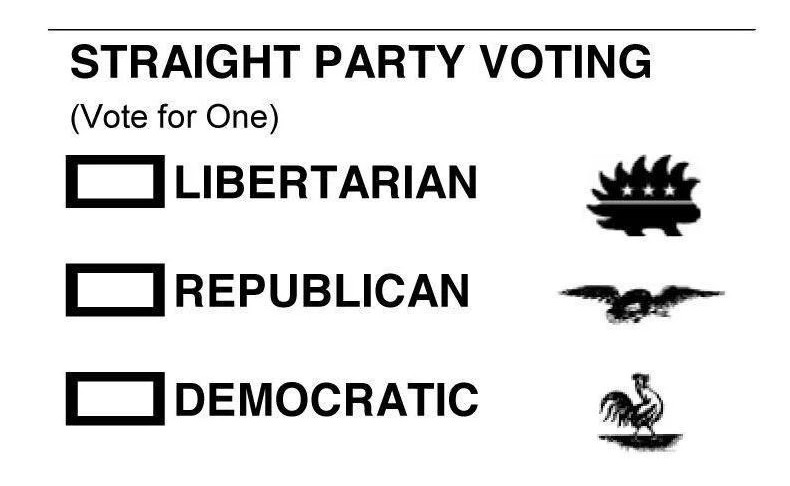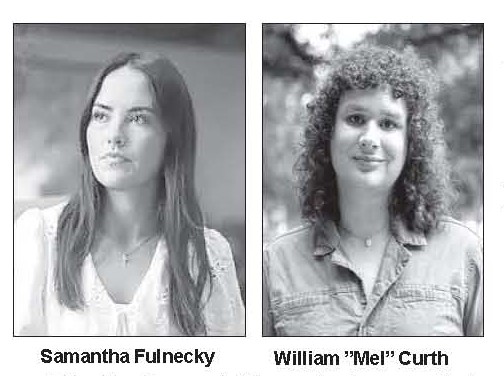Fallacies of the Jungle Primary Advocates
By Steve Byas
We are now seeing a push for the “jungle primary,” a type of open primary used in California and some other states. Under a closed primary, only those voters who identify with a particular party are allowed to legally vote in that party’s primary. The reasoning is simple. Why should Democrats and Independents be choosing Republican nominees, any more than Baptists should be picking the Catholic Pope?Under a typical open primary, voters are not registered in a particular political party, but can pick a party’s primary to vote in. With the jungle primary system, however, the unfairness is even worse. All candidates, regardless of political party, including independent candidates, run in one united primary, or jungle primary. The top two vote-getters, regardless of party, then advance to the general election, even if those two are of the same political party. In the unlikely scenario that one candidate receives a majority of the vote, there is then no need for a general election ballot.
With many candidates running, those top two vote-getters may only get, say, 40 percent of the vote total between them, but hey, it is more than the other 12 candidates got, so what’s the problem?
The problems are many.
The advocates of the jungle primary – in Oklahoma – tend to be either Democrats, who cannot win statewide any more, or self-described “moderate” Republicans, who cannot win Republican primaries. They openly express displeasure at the failure of more “centrist” Republicans to win Republican primaries. They see the jungle primary as a way of getting less conservative-minded Republicans elected.
To achieve their goal of the jungle primary, they offer various talking points, most of which sound like something out of the mouth of someone who has a far different philosophy of the proper role of government than I hold to.
For example, they argue that our present closed primary system leads to “lower voter turnout.” To me, the percentage of voter turnout is not all that important. After all, if we had a 95 percent voter turnout, but it produced a totalitarian government, with socialist economics, no Second Amendment rights, limited individual liberty and unlimited government power, count me out. I care much more about the end result of these elections than how many people vote.
A major reason that we have low voter turnout is satisfaction with present conditions. The reason America has tended to have lower voter turnout than other nations is that Americans have tended to be more satisfied with our historically smaller governments. In those nations in which more is done by government, you better get out and vote! Now, I do wish we had a larger voter turnout, from those who would vote for less government, but I would prefer that those who want to have more government control over my life, higher taxes, and the like just stay home.
Next, some argue that statewide elections are now settled in the Republican Party primary. Well, boo hoo. This indicates that the vast majority of Oklahomans prefer the Republican Party. I can predict a scenario in which only two Democrats are on the jungle primary ballot, but there are seven Republicans. If you combined the votes of the seven Republicans, it would be much greater than the combined vote of the two Democrats. However, if none of the seven Republicans got as many votes as either of the two Democrats, the Republicans could theoretically be left out of the general election. This could readily happen. In 2018, if under the jungle system, Oklahomans would have had to choose between two Democrats on the general election ballot.
You see the intention of the jungle primary folks?
Besides all of that, let us look at elections that are non-partisan, races in which candidates are not identified on the ballot by political party, such as school board and city council. They are like jungle primaries, except the candidates are not identified on the ballot by political party. They tend to produce much lower voter turnout than partisan general elections.
I read where one advocate of the jungle primary lamented that his state representative contest is “decided” in the Democrat primary. Actually, there was a Republican candidate in the last election. He lost, but he did very well. In the last quarter of a century, two different Republicans have won elections in this particular district, serving almost half the number of years as the Democrats. I fail to see what good it would do to have a jungle primary in this particular district.
If you want to have more people vote in these contests for school board and city council, the solution is to have closed primaries, followed by a general election in which the candidates are identified on the ballot as the nominees of their respective political parties.
In short, the solution is the opposite of those advocating for a jungle primary. The jungle primary is one of the worst ideas I have ever seen. If these jungle people succeed with getting their insane idea implemented, expect more Democrats and more less-conservative Republican office holders, because that is the intent.
Steve Byas is editor of the Oklahoma Constitution and a university professor of history and government. He is the author of several magazine articles and books, including History’s Greatest Libels. He may be contacted at byassteve@yahoo.com









Latest Commentary
Saturday 31st of January 2026
Saturday 31st of January 2026
Saturday 31st of January 2026
Saturday 31st of January 2026
Saturday 31st of January 2026
Saturday 31st of January 2026
Saturday 31st of January 2026
Saturday 31st of January 2026
Saturday 31st of January 2026
Saturday 31st of January 2026
Saturday 31st of January 2026
Saturday 31st of January 2026
Saturday 31st of January 2026